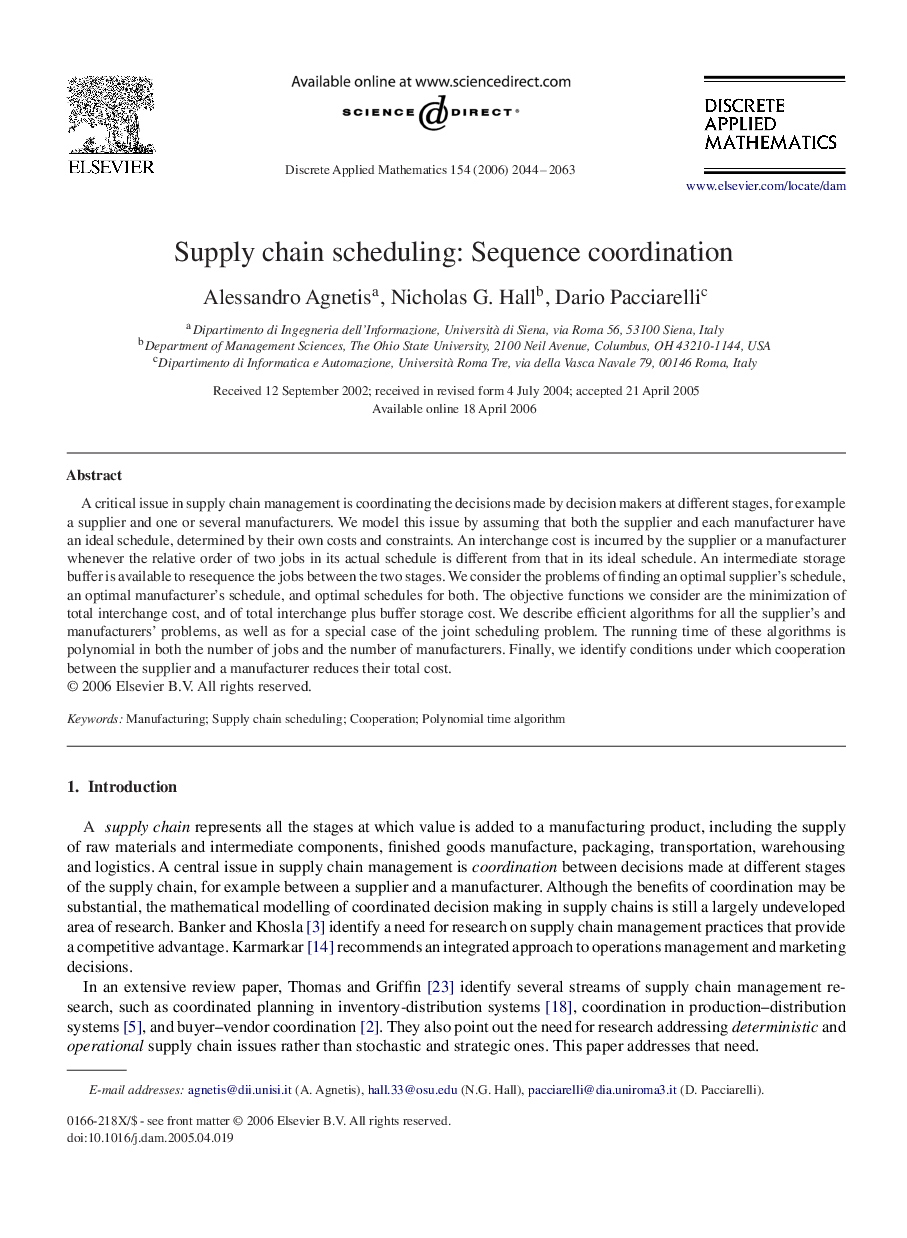| Article ID | Journal | Published Year | Pages | File Type |
|---|---|---|---|---|
| 420980 | Discrete Applied Mathematics | 2006 | 20 Pages |
A critical issue in supply chain management is coordinating the decisions made by decision makers at different stages, for example a supplier and one or several manufacturers. We model this issue by assuming that both the supplier and each manufacturer have an ideal schedule, determined by their own costs and constraints. An interchange cost is incurred by the supplier or a manufacturer whenever the relative order of two jobs in its actual schedule is different from that in its ideal schedule. An intermediate storage buffer is available to resequence the jobs between the two stages. We consider the problems of finding an optimal supplier's schedule, an optimal manufacturer's schedule, and optimal schedules for both. The objective functions we consider are the minimization of total interchange cost, and of total interchange plus buffer storage cost. We describe efficient algorithms for all the supplier's and manufacturers’ problems, as well as for a special case of the joint scheduling problem. The running time of these algorithms is polynomial in both the number of jobs and the number of manufacturers. Finally, we identify conditions under which cooperation between the supplier and a manufacturer reduces their total cost.
